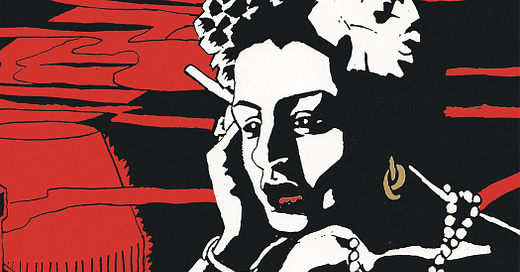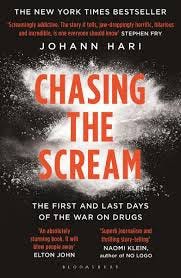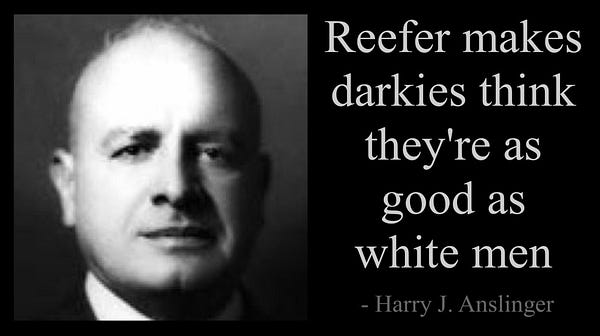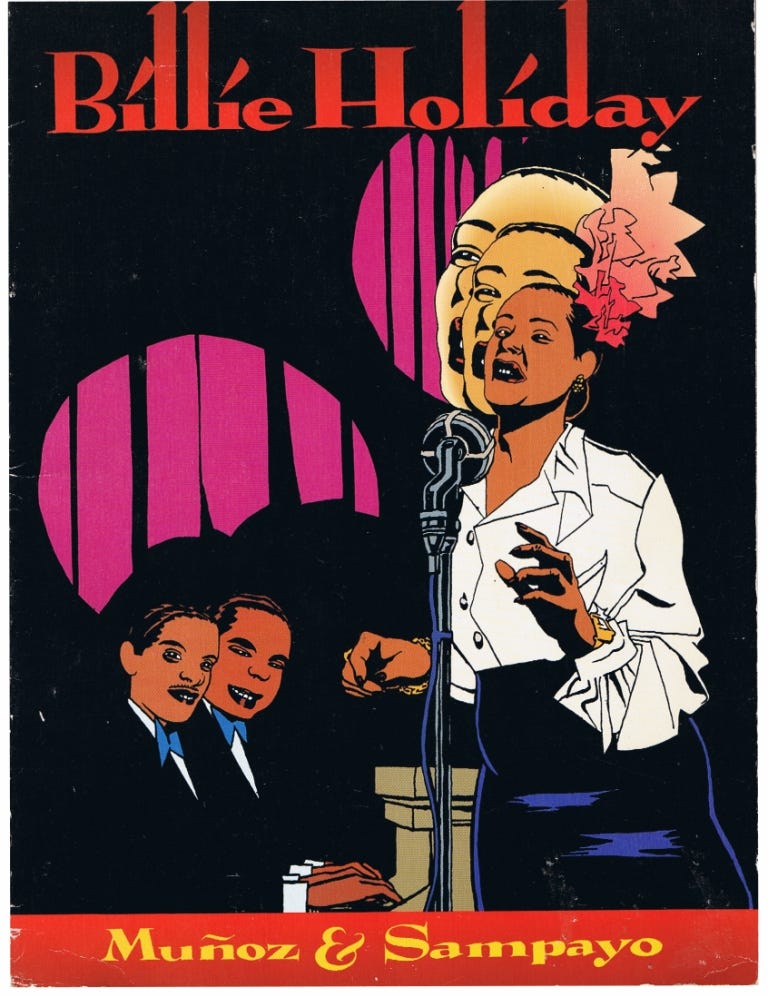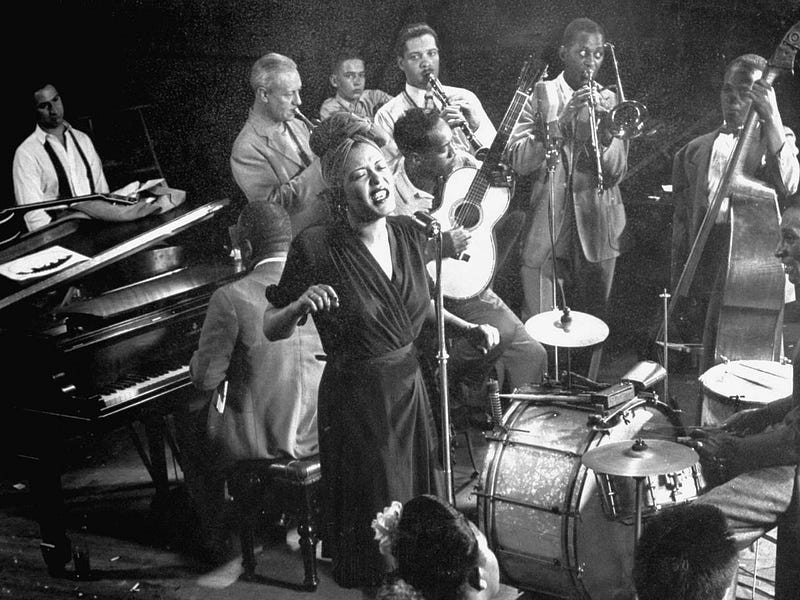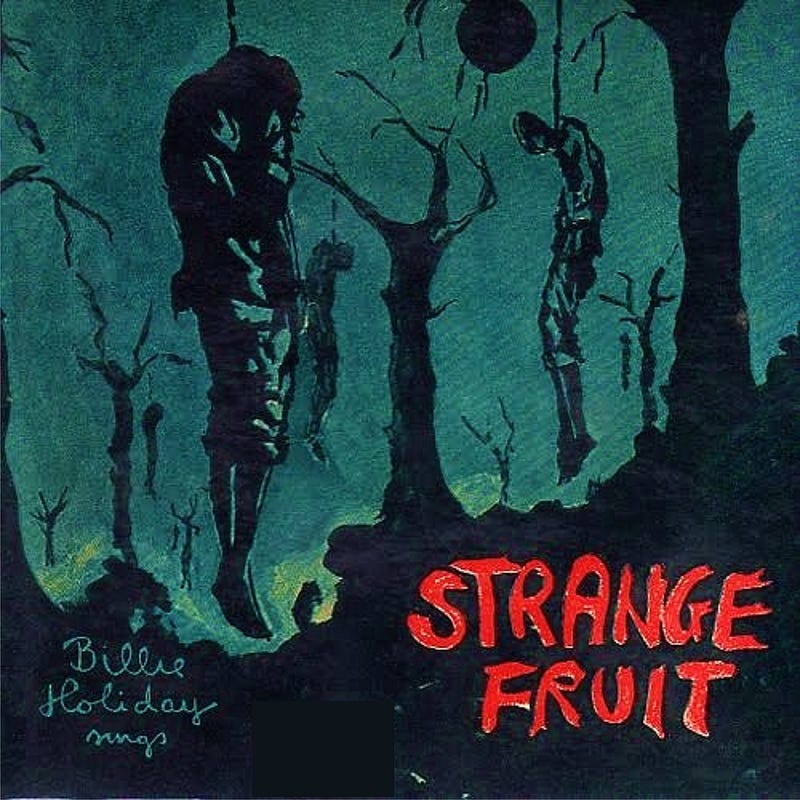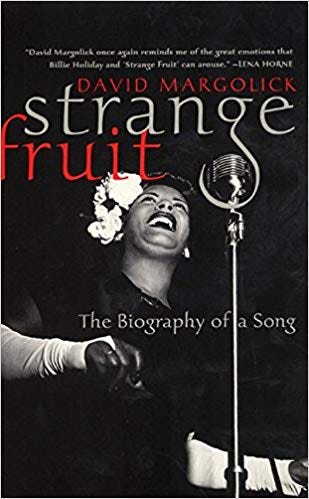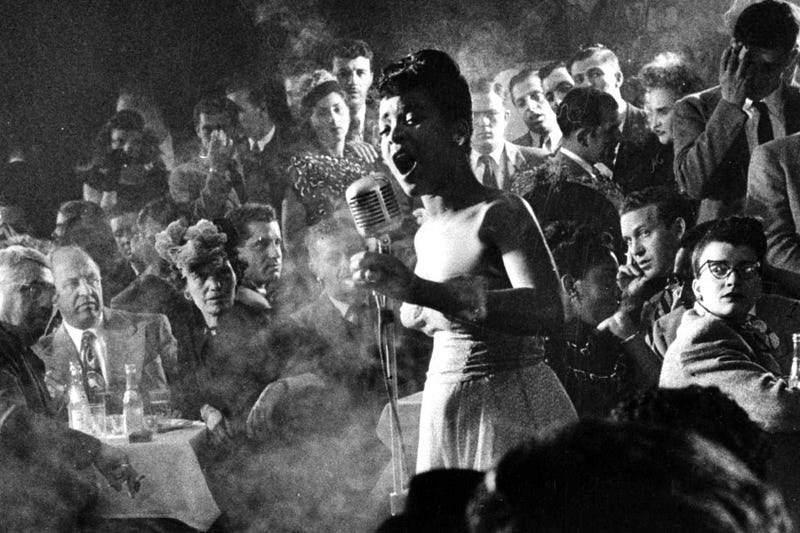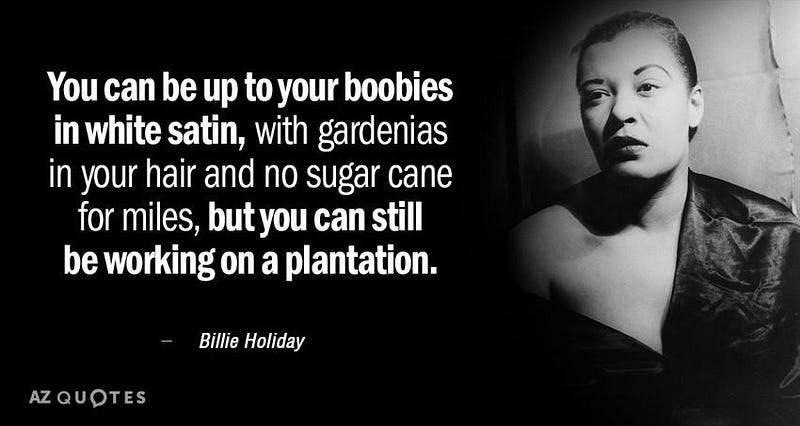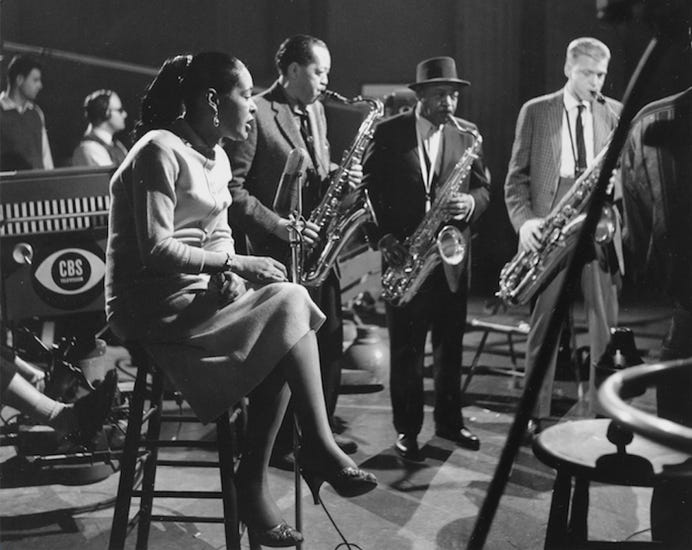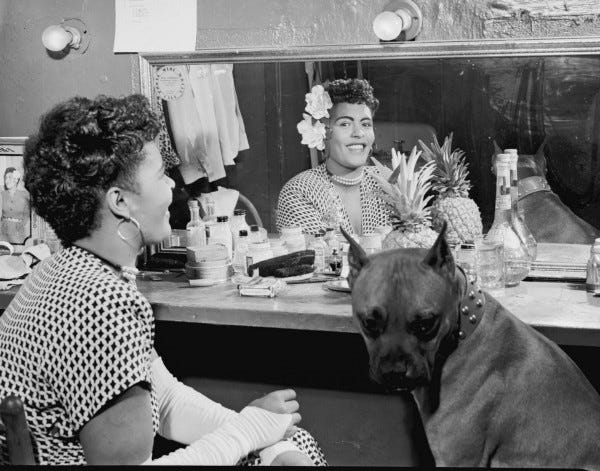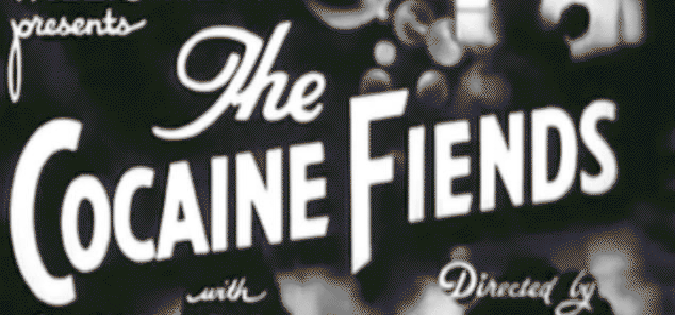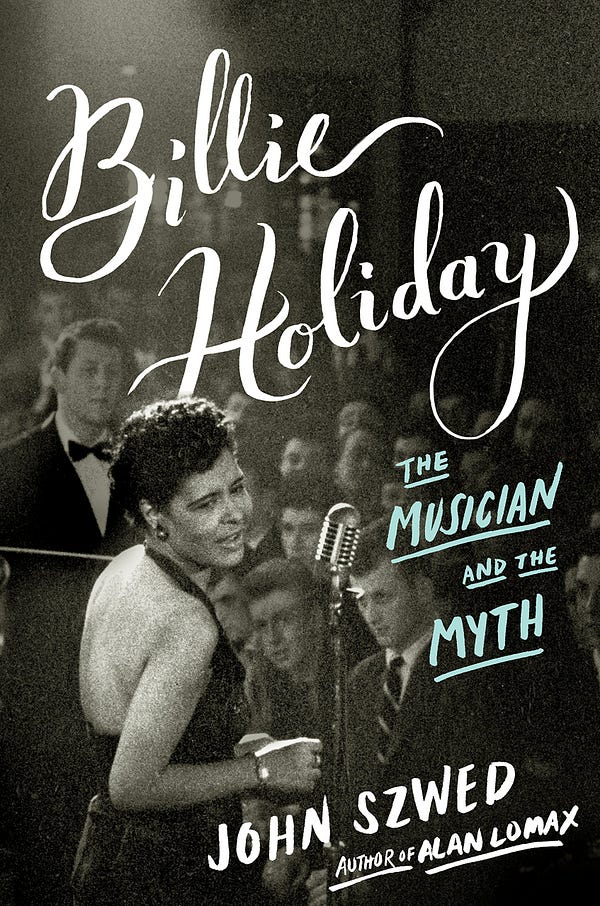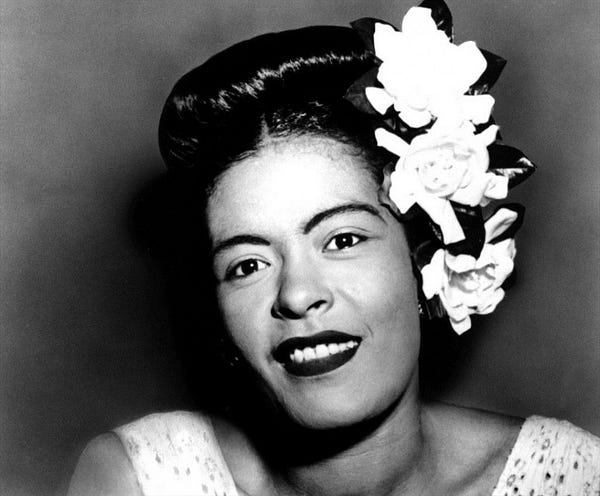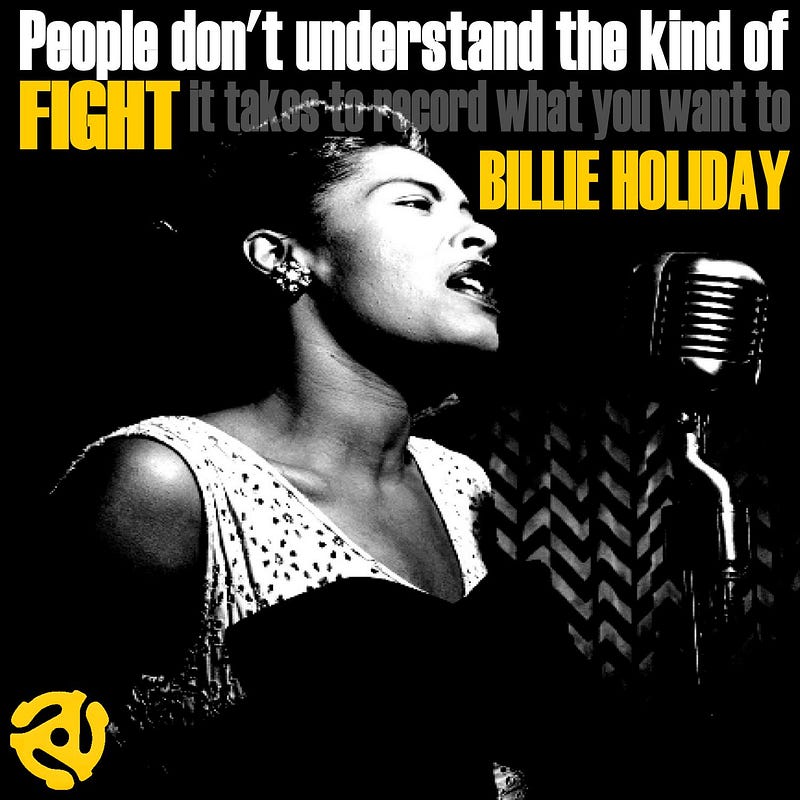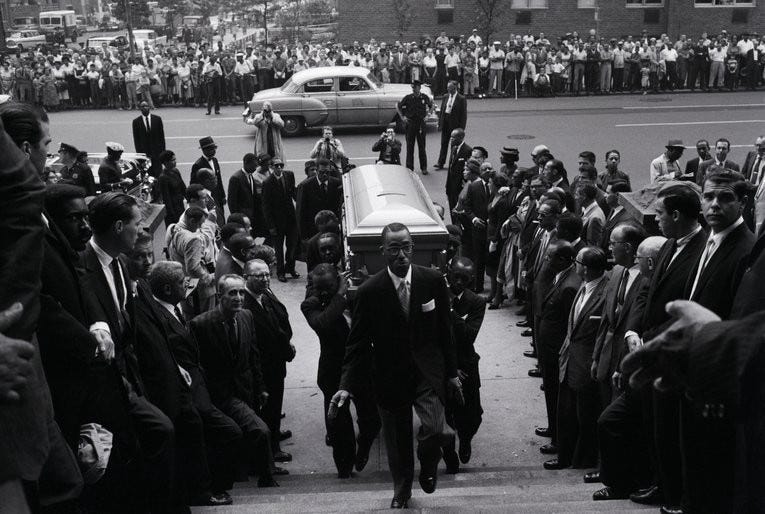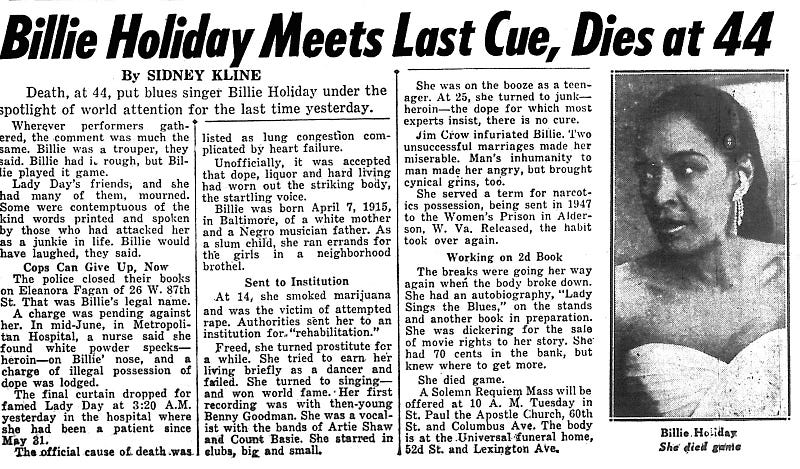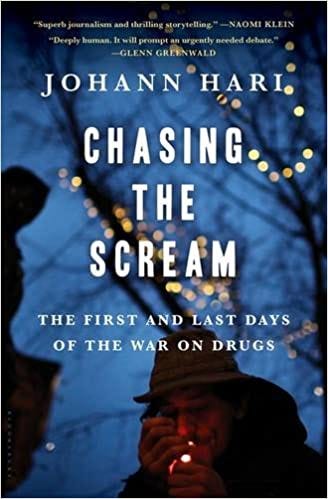The Hounding of Billie Holiday: The First and Last Days of the War on Drugs
The authorities hounded Billie Holiday to death.
Almost 60 years later, venal self-serving governments continue to promote moral panic and public hysteria perpetrating policies they know perfectly well don’t work. The same policies that achieve nothing but empowerment of thugs inside and outside of governments, all at the expense of those who make personal choices different to the mainstream. Or those with substance abuse issues.
There is no appeal to our better angels. There remains a direct appeal to the worst of our natures.
All over a private and personal issue, for what people do with their own lives in their own time with their own money.
The best book ever written on drug policy is Chasing the Scream: The First and Last Days of the War on Drugs, by British journalist Johann Hari.
Simple as that.
A pity governments pay no heed to the best and brightest.
The book attracted a torrent of praise from many high profile figures.
“Johann Hari’s book is the perfect antidote to the war on drugs, one of the most under-discussed moral injustices of our time. It combines rigorous research and deeply human story-telling. It will prompt an urgently-needed debate.”
Glenn Greenwald, winner of the Pulitzer Prize
Western governments have created the perfect conditions for drug epidemics — low levels of community engagement and social cohesion — while putting the jackboots through the lives of those they consider disposable. In their attempts to hold on to power, they are perfectly happy to sacrifice the welfare of their citizens.
Below is an extract from Chasing the Scream, published by A Sense of Place Magazine courtesy of the author.
Enter the Devil
From his first day in office in 1930, Harry Anslinger had a problem, and everybody knew it. He had just been appointed head of the Federal Bureau of Narcotics — a tiny agency, buried in the gray bowels of the Treasury Department in Washington, D.C. — and it seemed to be on the brink of being abolished. This was the old Department of Prohibition, but prohibition had been abolished and his men needed a new role, fast. As he looked over his new staff — just a few years before his pursuit of Billie Holiday began — he saw a sunken army who had spent fourteen years waging war on alcohol only to see alcohol win, and win big. These men were notoriously corrupt and crooked — but now Harry was supposed to whip them into a force capable of wiping drugs from the United States forever.
Harry believed he could. He believed that the response to being dealt a weak hand should always be to dramatically raise the stakes. He pledged to eradicate all drugs, everywhere — and within thirty years, he succeeded in turning this crumbling department with these disheartened men into the headquarters for a global war that would continue for decades. He could do it because he was a bureaucratic genius — but, even more crucially, because there was a deep strain in American culture that was waiting for a man like him, with a sure and certain answer to their questions about chemicals.
Jazz was the opposite of everything Harry Anslinger believed in. It is improvised, relaxed, free-form. It follows its own rhythm. Worst of all, it is a mongrel music made up of European, Caribbean and African echoes, all mating on American shores. To Anslinger, this was musical anarchy and evidence of a recurrence of the primitive impulses that lurk in black people, waiting to emerge. “It sounded,” his internal memos said, “like the jungles in the dead of night.” Another memo warned that “unbelievably ancient indecent rites of the East Indies are resurrected” in this black man’s music. The lives of the jazzmen, he said, “reek of filth.”
His agents reported back to him that “many among the jazzmen think they are playing magnificently when under the influence of marihuana but they are actually becoming hopelessly confused and playing horribly.”
The Bureau believed that marijuana slowed down your perception of time dramatically, and this was why jazz music sounded so freakish — the musicians were literally living at a different, inhuman rhythm. “Music hath charms,” their memos say, “but not this music.” Indeed, Anslinger took jazz as yet more proof that marijuana drives people insane. For example, the song “That Funny Reefer Man” contains the line “Any time he gets a notion, he can walk across the ocean.” Anslinger’s agents warned that’s exactly what drug users were like: “He does think that.”
Anslinger looked out over a scene filled with rebels like Charlie Parker, Louis Armstrong and Thelonious Monk, and — as the journalist Larry Sloman recorded — he longed to see them all behind bars. He wrote to all the agents he had sent to follow them and instructed: “Please prepare all cases in your jurisdiction involving musicians in violation of the marijuana laws. We will have a great national round-up arrest of all such persons on a single day. I will let you know what day.” His advice on drug raids to his men was always simple: “Shoot first.”
He reassured congressmen that his crackdown would affect not “the good musicians, but the jazz type.” But when Harry came for them, the jazz world would have one weapon that saved them: its absolute solidarity. Anslinger’s men could find almost no one among them who was willing to snitch, and whenever one of them was busted, they all chipped in to bail him out.
In the end, the Treasury Department told Anslinger he was wasting his time taking on a community that couldn’t be fractured, so he scaled down his focus until it settled like a laser on a single target — perhaps the greatest female jazz vocalist there ever was.
He wanted to bring the full thump of the federal government down upon that scourge of modern society, his Public Enemy #1: Billie Holiday.
Strange Fruit
Southern trees bear strange fruit
Blood on the leaves and blood at the root
Black bodies swinging in the southern breeze
Strange fruit hanging from the poplar trees
One night, in 1939, Billie Holiday stood on stage in New York City and sang a song that was unlike anything anyone had heard before. ‘Strange Fruit’ was a musical lament against lynching.
It imagined black bodies hanging from trees as a dark fruit native to the South.
Here was a black woman, before a mixed audience, grieving for the racist murders in the United States. Immediately after, Billie Holiday received her first threat from the Federal Bureau of Narcotics.
Harry had heard whispers that she was using heroin, and — after she flatly refused to be silent about racism — he assigned an agent named Jimmy Fletcher to track her every move.
Harry hated to hire black agents, but if he sent white guys into Harlem and Baltimore, they stood out straight away. Jimmy Fletcher was the answer. His job was to bust his own people, but Anslinger was insistent that no black man in his Bureau could ever become a white man’s boss. Jimmy was allowed through the door at the Bureau, but never up the stairs. He was and would remain an “archive man” — a street agent whose job was to figure out who was selling, who was supplying and who should be busted.
He would carry large amounts of drugs with him, and he was allowed to deal drugs himself so he could gain the confidence of the people he was secretly plotting to arrest.
Many agents in this position would shoot heroin with their clients, to “prove” they weren’t cops. We don’t know whether Jimmy joined in, but we do know he had no pity for addicts: “I never knew a victim,” he said. “You victimize yourself by becoming a junkie.”
He first saw Billie in her brother-in-law’s apartment, where she was drinking enough booze to stun a horse and hoovering up vast quantities of cocaine. The next time he saw her, it was in a brothel in Harlem, doing exactly the same. Billie’s greatest talent, after singing, was swearing — if she called you a “motherfucker,” it was a great compliment. We don’t know the first time Billie called Jimmy a motherfucker, but she soon spotted this man who was hanging around, watching her, and she grew to like him.
When Jimmy was sent to raid her, he knocked at the door pretending he had a telegram to deliver. Her biographers Julia Blackburn and Donald Clark studied the only remaining interview with Jimmy Fletcher — now lost by the archives handling it — and they wrote about what he remembered in detail.
“Stick it under the door!” she yelled. “It’s too big to go under the door!” he snapped back. She let him in. She was alone. Jimmy felt uncomfortable. “Billie, why don’t you make a short case of this and, if you’ve got anything, why don’t you turn it over to us?” he asked. “Then we won’t be searching around, pulling out your clothes and everything. So why don’t you do that?” But Jimmy’s partner arrived and sent for a policewoman to conduct a body search.
“You don’t have to do that. I’ll strip,” Billie said. “All I want to say is — will you search me and let me go? All that policewoman is going to do is look up my pussy.”
She stripped and stood there, and then she pissed in front of them, defying them to watch.
The Hunt
The morning he first raided her, Jimmy took Billie to one side and promised to talk to Anslinger personally for her. “I don’t want you to lose your job,” he said.
Not long after, he ran into her in a bar and they talked for hours, with her pet Chihuahua, Moochy, by her side. Then, one night, at Club Ebony, they ended up dancing together — Billie Holiday and Anslinger’s agent, swaying together to the music.
“And I had so many close conversations with her, about so many things,” he would remember years later. “She was the type who would make anyone sympathetic because she was the loving type.” The man Anslinger sent to track and bust Billie Holiday had, it seems, fallen in love with her.
But Anslinger was going to be given a break on Billie, one he got nowhere else in the jazz world. Billie had got used to turning up at gigs so badly beaten by her husband, manager and sometimes pimp, Louis McKay, they had to tape up her ribs before pushing her onstage. She was too afraid to go to the police — but finally she was brave enough to cut him off.
“How come I got to take this from this bitch here? This low-class bitch?” McKay raged, according to an interviewer who spoke with him years after Billie’s death. “If I got a whore, I got some money from her or I don’t have nothing to do with the bitch.” He had heard that Harry Anslinger wanted information on her, and he was intrigued. “She’s been getting away with too much shit,” MacKay said, adding he wanted “Holiday’s ass in the gutter in the East River.”
That, it seems, was the clincher. “I got enough to finish her off,” he had pledged. “I’m going to do her up so goddam bad she going to remember as long as she live.” He travelled to D.C. to see Harry, and he agreed to set her up.
Prisons of All Our Makings
When Billie was busted again, she was put on trial. She stood before the court looking pale and stunned. “It was called ‘The United States of America versus Billie Holiday,’” she wrote in her memoir, “and that’s just the way it felt.” She refused to weep on the stand. She told the judge she didn’t want any sympathy. She just wanted to be sent to a hospital so she could kick the drugs and get well. Please, she said to the judge, “I want the cure.
”She was sentenced instead to a year in a West Virginia prison, where she was forced to go cold turkey and work during the days in a pigsty, among other places. In all her time behind bars, she did not sing a note. Years later, when her autobiography was published, Billie tracked Jimmy Fletcher down and sent him a signed copy.
She had written inside it: “Most federal agents are nice people.
“They’ve got a dirty job to do and they have to do it.
“Some of the nicer ones have feelings enough to hate themselves sometime for what they have to do . . . Maybe they would have been kinder to me if they’d been nasty; then I wouldn’t have trusted them enough to believe what they told me.”
She was right: Jimmy told the writer Linda Kuehl that he never stopped feeling guilty for what he’d done to Lady Day. “Billie ‘paid her debt’ to society,” one of her friends wrote, “but society never paid its debt to her.”
Now, as a former convict, she was stripped of her cabaret performer’s license, on the grounds that listening to her might harm the morals of the public. This meant she wasn’t allowed to sing anywhere that alcohol was served — which included all the jazz clubs in the United States.
Cocaine Fiends
In the run-up to the passing of the Harrison Act in 1914 — the law that first criminalized drugs in the United States — the New York Times ran a story typical of the time.
The headline was: “Negro cocaine ‘fiends’ new southern menace.” It described a North Carolina police chief who “was informed that a hitherto inoffensive negro, with whom he was well-acquainted, was ‘running amuck’ in a cocaine frenzy [and] had attempted to stab a storekeeper . . . Knowing he must kill this man or be killed himself, the Chief drew his revolver, placed the muzzle over the negro’s heart, and fired — ‘intending to kill him right quick,’ as the officer tells it, but the shot did not even stagger the man.”
Cocaine was, it was widely claimed in the press at this time, turning blacks into superhuman hulks who could take bullets to the heart without flinching. It was the official reason why some police in the South increased the caliber of their guns.
One medical expert put it bluntly: “The cocaine nigger,” he warned, “sure is hard to kill.”
Harry Anslinger did not create these underlying trends. His genius wasn’t for invention: it was for presenting his agents as the hand that would steady all these cultural tremblings. He knew that to secure his bureau’s future, he needed a high-profile victory, over intoxication and over black people, and so he turned back to Billie Holiday.
To finish her off, he called for his toughest agent — a man who was at no risk of falling in love with her, or anyone else.
I Have Very Good Friends who are Murderers
The Japanese man couldn’t breathe. Colonel George White — a vastly obese white slab of a man — had his hands tightened around his throat, and he was not letting go.
It was the last thing the Japanese man ever saw. Once it was all over, White told the authorities he strangled this “Jap” because he believed he was a spy. But privately, he told his friends he didn’t really know if his victim was a spy at all, and he didn’t care.
“I have a lot of friends who are murderers,” he bragged years later, and “I had very good times in their company.” He boasted to his friends that he kept a photo of the man he had throttled hanging on the wall of his apartment, always watching him. So as he got to work on Billie, Colonel White was watched by his last victim, and this made him happy.
White was Harry Anslinger’s favorite agent, and when he looked over Holiday’s files, he declared her to be “a very attractive customer,” because the Bureau was “at a loose end” and could do with the opportunity “to kick her over.”
White had been a journalist in San Francisco in the 1930s until he applied to join the Federal Bureau of Narcotics. The personality test given to all applicants on Anslinger’s orders found that he was a sadist. He quickly rose through the bureau’s ranks. He became a sensation as the first and only white man ever to infiltrate a Chinese drug gang, and he even learned to speak in Mandarin so he could chant their oaths with them. In his downtime, he would go swimming in the filthy waters of New York City’s Hudson River, as if daring it to poison him.
He was especially angered that this black woman didn’t know her place. “She flaunted her way of living, with her fancy coats and fancy automobiles and her jewelry and her gowns,” he complained. “She was the big lady wherever she went.”
When he came for her on a rainy day at the Mark Twain Hotel in San Francisco without a search warrant, Billie was sitting in white silk pajamas in her room.
This was one of the few places she could still perform, and she badly needed the money.
She insisted to the police that she had been clean for over a year.
White’s men declared they had found opium stashed in a wastepaper basket next to a side room and the kit for shooting heroin in the room, and they charged her with possession.
But when the details were looked at later, there seemed to be something odd: a wastepaper basket seems an improbable place to keep a stash, and the kit for shooting heroin was never entered into evidence by the cops — they said they left it at the scene.
When journalists asked White about this, he blustered; his reply, they noted, “appeared a little defensive.”
That night, White came to Billie’s show at the Café Society Uptown, and he requested his favorite songs. She never lost faith in her music’s ability to capture and persuade. “They’ll remember me,” she told a friend, “when all this is gone, and they’ve finished badgering me.” George White did not agree. “I did not think much of Ms. Holiday’s performance,” he told her manager sternly.
Billie insisted the junk had been planted in her room by White, and she immediately offered to go into a clinic to be monitored: she would experience no withdrawal symptoms, she said, and that would prove she was clean and being framed. She checked herself in at a cost of one thousand dollars, and according to Ken Vail’s book Lady Day’s Diary, she didn’t so much as shiver.
We do know that George White had a long history of planting drugs on women. He was fond of pretending to be an artist and luring women to an apartment in Greenwich Village where he would spike their drinks with LSD to see what would happen.
One of his victims was a young actress who happened to live in his building, while another was a pretty blond waitress in a bar.
After she failed to show any sexual interest in him, he drugged her to see if that would change. “I toiled whole-heartedly in the vineyards because it was fun, fun, fun,” White boasted after he had retired from the Bureau.
“Where else [but in the Bureau of Narcotics] could a red-blooded American boy lie, kill, cheat, steal, rape and pillage with the sanction and blessing of the All-Highest?”
He may well have been high when he busted Billie for getting high.
The prosecution of Billie went ahead.
“The hounding and the pressure drove me,” she wrote, “to think of trying the final solution, death.” Her best friend said it caused Billie “enough anxieties to kill a horse.”
At the trial, a jury of twelve ordinary citizens heard all the evidence. They sided with Billie against Anslinger and White, and found her not guilty. Nonetheless, “she had slipped from the peak of her fame,” Harry Anslinger wrote. “Her voice was cracking.”
In the years after Billie’s trial, many other singers were too afraid of being harassed by the authorities to perform “Strange Fruit.”
But Billie Holiday refused to stop.
No matter what they did to her, she sang her song.
“She was,” her friend Annie Ross told me, “as strong as she could be.”
Harassed On Her Death Bed
When Billie was forty-four years old, ayoung musician named Frankie Freedom was serving her a bowl of oatmeal and custard in his apartment when she suddenly collapsed. She was taken to the Knickerbocker Hospital in Manhattan and made to wait for an hour and a half on a stretcher, and they said she was a drug addict and turned her away.
One of the ambulance drivers recognized her, so she ended up in a public ward of New York City’s Metropolitan Hospital. As soon as they took her off oxygen, she lit a cigarette.
“Some damnbody is always trying to embalm me,” she said, but the doctors came back and explained she had an array of very serious illnesses: she was emaciated because she had not been eating; she had cirrhosis of the liver because of chronic drinking; she had cardiac and respiratory problems due to chronic smoking; and she had several leg ulcers caused by starting to inject street heroin once again.
They said she was unlikely to survive for long — but Harry wasn’t done with her yet.
“You watch, baby,” Billie warned from her tiny gray hospital room.
“They are going to arrest me in this damn bed.”
Narcotics agents were sent to her hospital bed and said they had found less than one-eighth of an ounce of heroin in a tinfoil envelope. They claimed it was hanging on a nail on the wall, six feet from the bottom of her bed — a spot Billie was incapable of reaching. They summoned a grand jury to indict her, telling her that unless she disclosed her dealer, they would take her straight to prison.
They confiscated her comic books, radio, record player, flowers, chocolates and magazines, handcuffed her to the bed and stationed two policemen at the door.
They had orders to forbid any visitors from coming in without a written permit, and her friends were told there was no way to see her.
So now, on top of the cirrhosis of the liver, Billie went into heroin withdrawal, alone.
They fingerprinted Billie on her hospital bed. They took a mug shot of her on her hospital bed. They grilled her on her hospital bed without letting her talk to a lawyer.
Billie didn’t blame Anslinger’s agents as individuals; she blamed the drug war itself — because it forced the police to treat ill people like criminals.
This is an extract from the book Chasing the Scream by Johann Hari, which A Sense of Place Magazine highly recommends as one of the best books ever written on drug policy.


